Exclusive Trends About In-Demand Allied Health Professions
We collected insights and data from employers of allied health professionals, digging deeper to understand what they seek in candidates, what these professionals’ daily work looks like, and what traits and skills make them most successful in their roles. Here's what we found.
Get Your
Complimentary Report
As an advocate for allied health professionals, we hope you can use this data to help your learners and employees navigate their own path to achieve their career dreams and contribute to building healthcare to be better than ever.
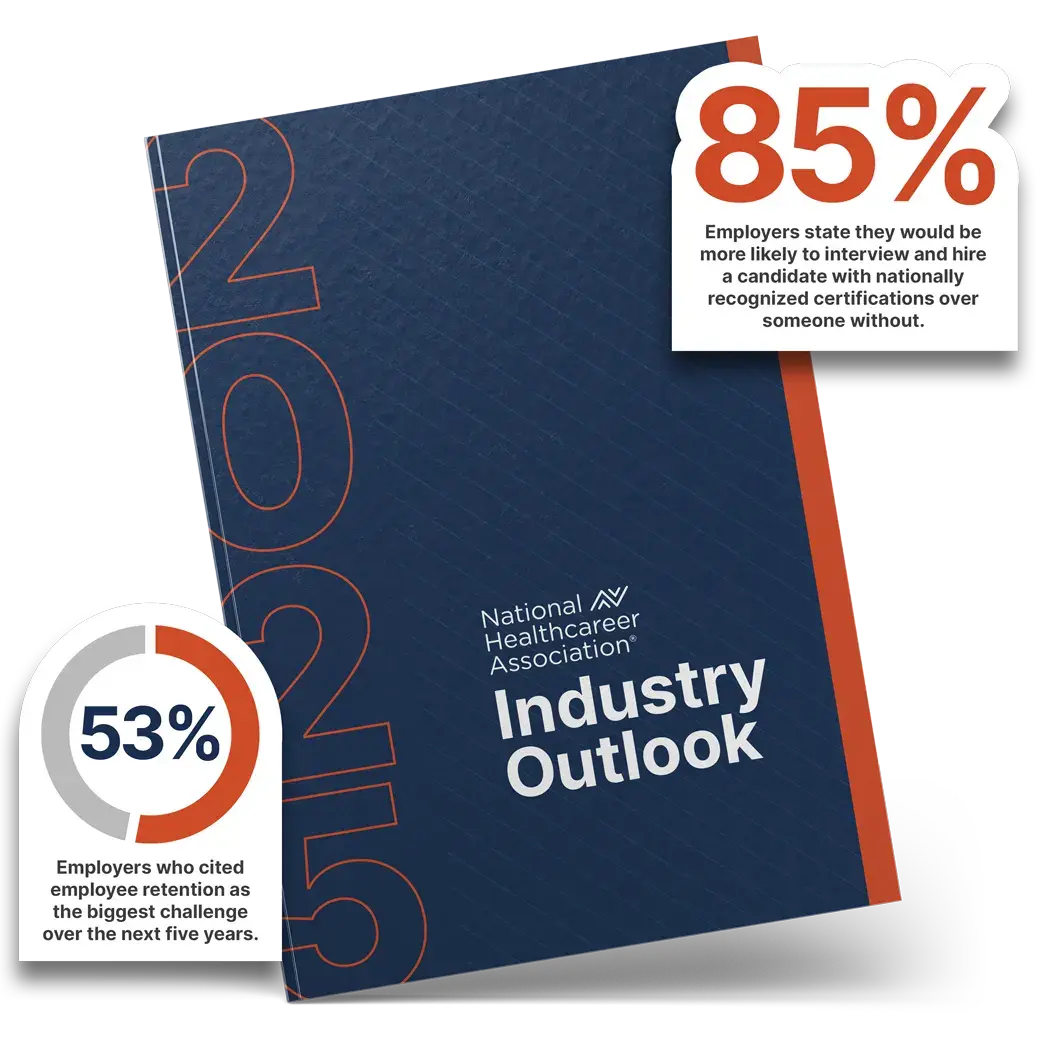
What percent of the following professions require certification within your organization?
The journey towards strengthening our healthcare workforce starts with high quality education and training followed by obtaining a national certification. Certification is often the starting point to a successful career and signifies to an employer job readiness for the role along with demonstrating a standardized measure of knowledge and skills.
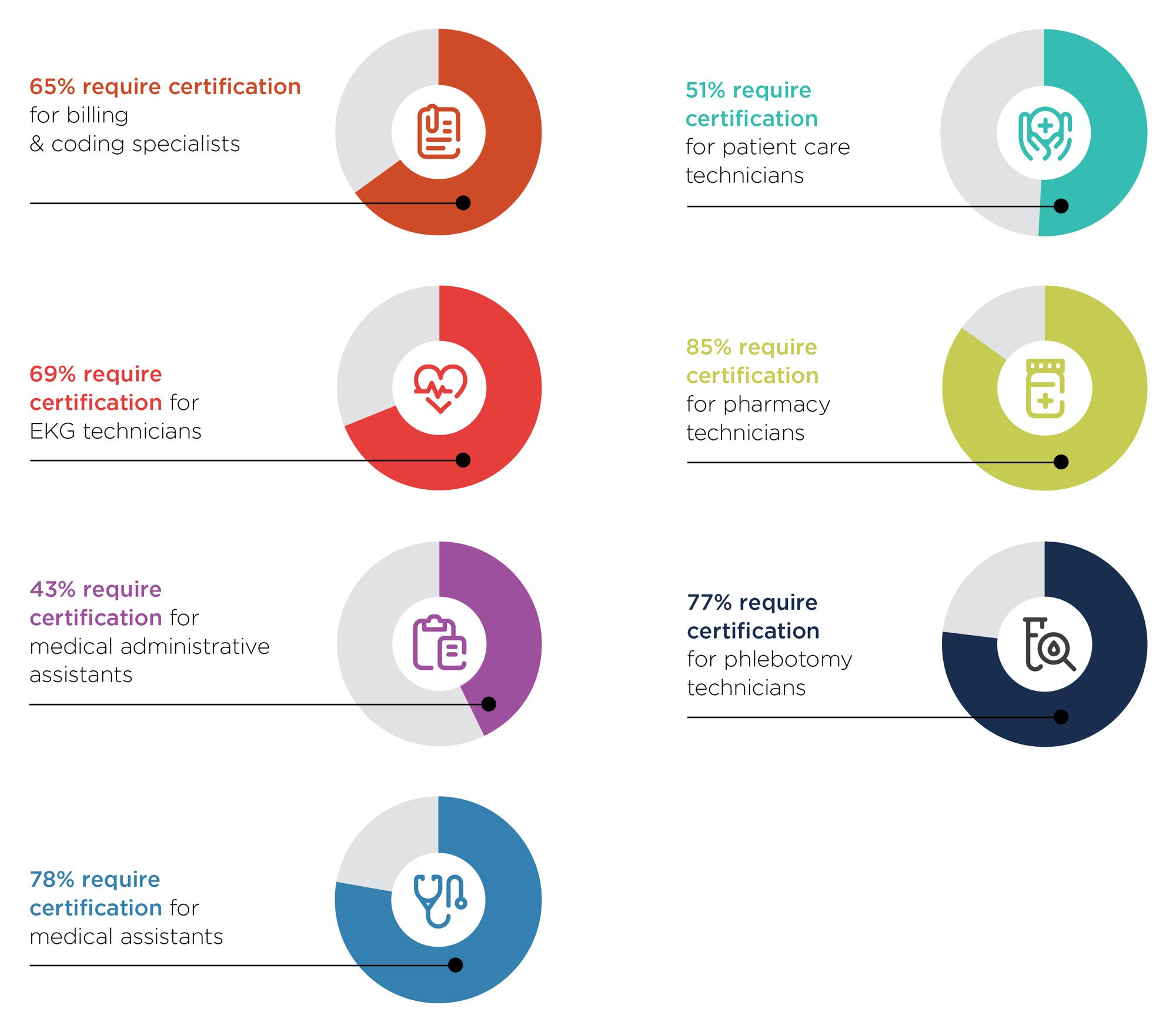
What percent of the following professions require certification within your organization?
The journey towards strengthening our healthcare workforce starts with high quality education and training followed by obtaining a national certification. Certification is often the starting point to a successful career and signifies to an employer job readiness for the role along with demonstrating a standardized measure of knowledge and skills.
61% require certification
for Billing & Coding Specialists
75% require certification
for EKG Technicians
47% require certification
for medical administrative assistants
72% require certification
for medical assistants
51% require certification
for patient care technicians
83% require certification
for pharmacy technicians
78% require certification
for phlebotomy technicians
How many employees are certified within your organization?
Employers understand the value of supporting or hiring certified professionals. It not only shows a commitment to providing high quality patient care but also a commitment to their employees and their career aspirations. Once an individual has earned certification, they are ready to traverse a healthcare journey towards career growth, advancement and further successes.
75% of Billing & Coding Specialists
81% of EKG Technicians
62% of medical administrative assistants
78% of medical assistants
70% of patient care technicians
88% of pharmacy technicians
83% of phlebotomy technicians
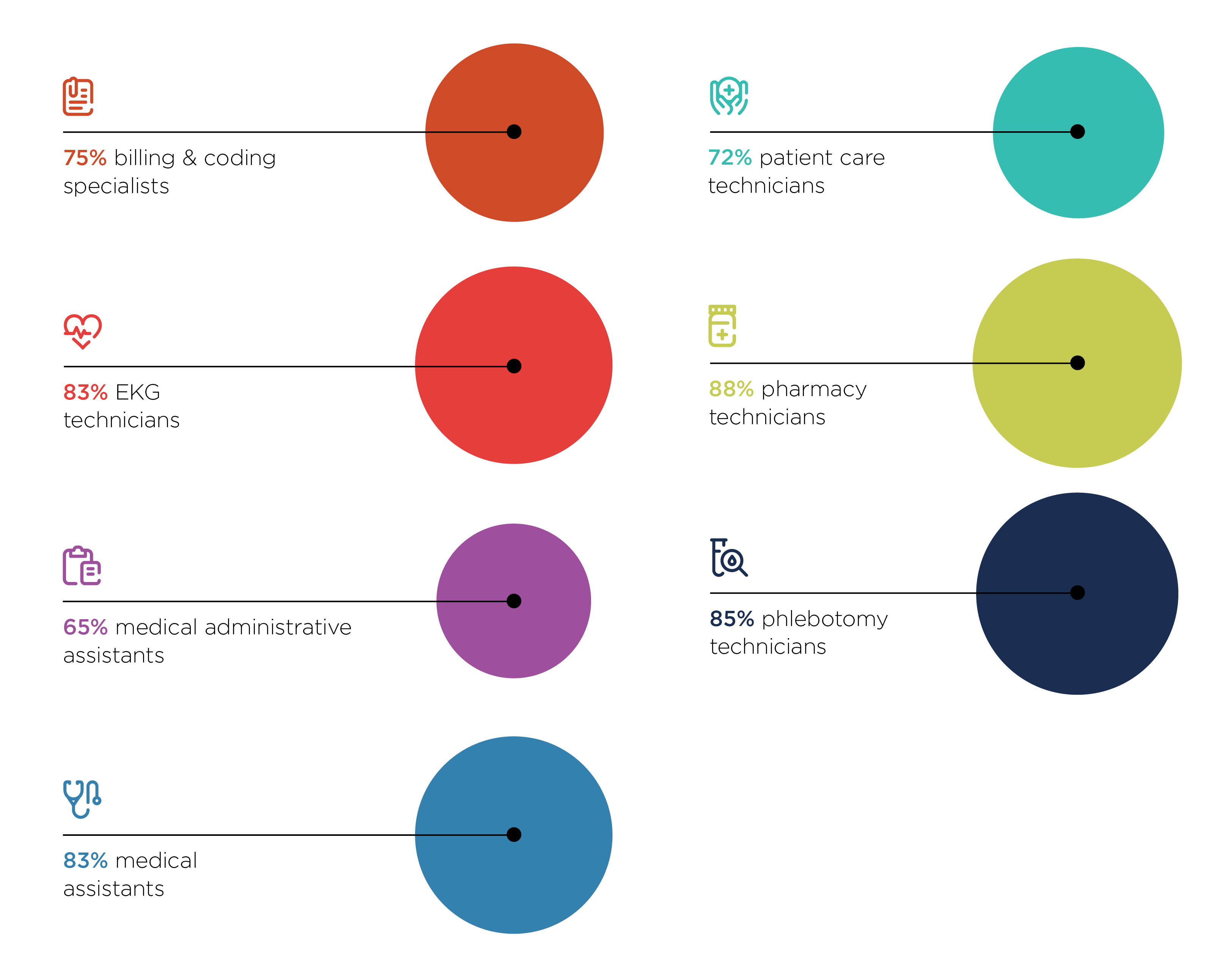
Gain exclusive access to personalized insights and valuable data tailored for allied health professions.
Get Your
Complimentary Report
As an advocate for allied health professionals, we hope you can use this data to help your learners and employees navigate their own path to achieve their career dreams and contribute to building healthcare to be better than ever.
Projected Growth and Salary in Allied Health Professions
Overall employment in healthcare occupations is projected to grow much faster than the average for all occupations from 2023 to 2033. About 1.8 million openings are projected each year, on average, in these occupations due to employment growth and the need to replace workers who leave the occupations permanently.
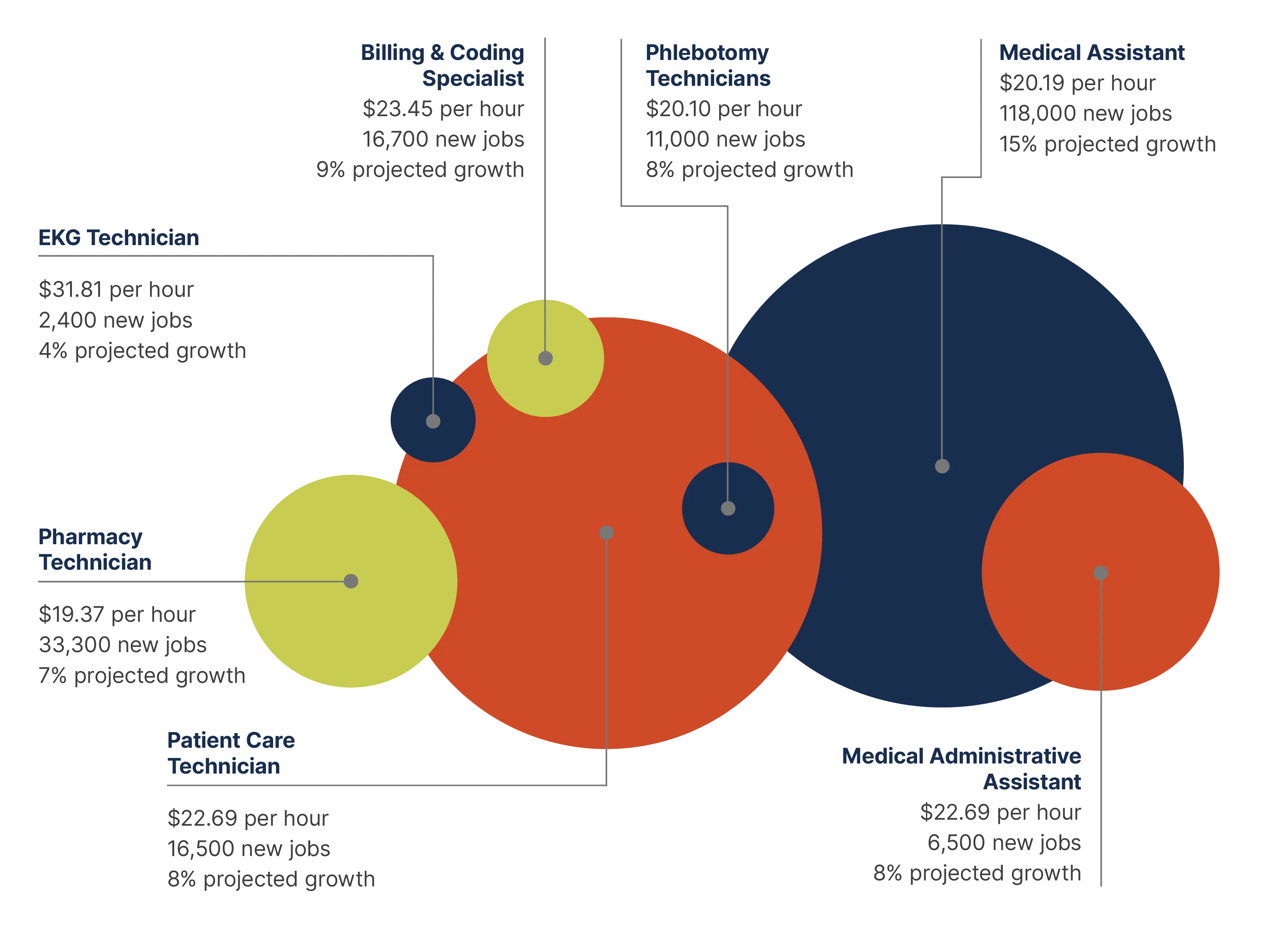
* Bureau of Labor Statistics Data
What percentage of allied health employers would hire a candidate with a nationally recognized certification over someone without?
Certification shows educators their work in preparing students is paying off. For employers, it provides confidence in potential hires. And for individuals, certification unlocks doors to advancement.
What percentage of allied health employers pay more when their employees earn national certification?
With health care staffing issues on the rise, employers are thinking about multiple ways to attract and retain key talent. Supporting employees through national certification and wage increases is just one way.
What training methods are used to develop employees’ clinical/administrative skills?
It is no surprise that direct on-the-job training is still the number one most effective way that individuals learn. It allows a hands-on method of teaching the skills, knowledge, and competencies needed for employees to perform a specific role along with allowing them to become fully emersed in the work environment with their colleagues and patients.
Closing the gap to educate and train the next generation of healthcare professionals
NHA's Industry Outlook shares the trends impacting some of the most in-demand allied health professions. Through our research, NHA collects insights and data from employers of allied health professionals, digging deeper to understand what they seek in candidates, what these professionals’ daily work looks like, and what traits and skills make them most successful in their roles.
Download the full report or talk with one of our advisors.
Get Your
Complimentary Report
As an advocate for allied health professionals, we hope you can use this data to help your learners and employees navigate their own path to achieve their career dreams and contribute to building healthcare to be better than ever.
Connect with Our NHA Advisor today!
Employers & Educators — learn how NHA can help build or expand your allied health program today!
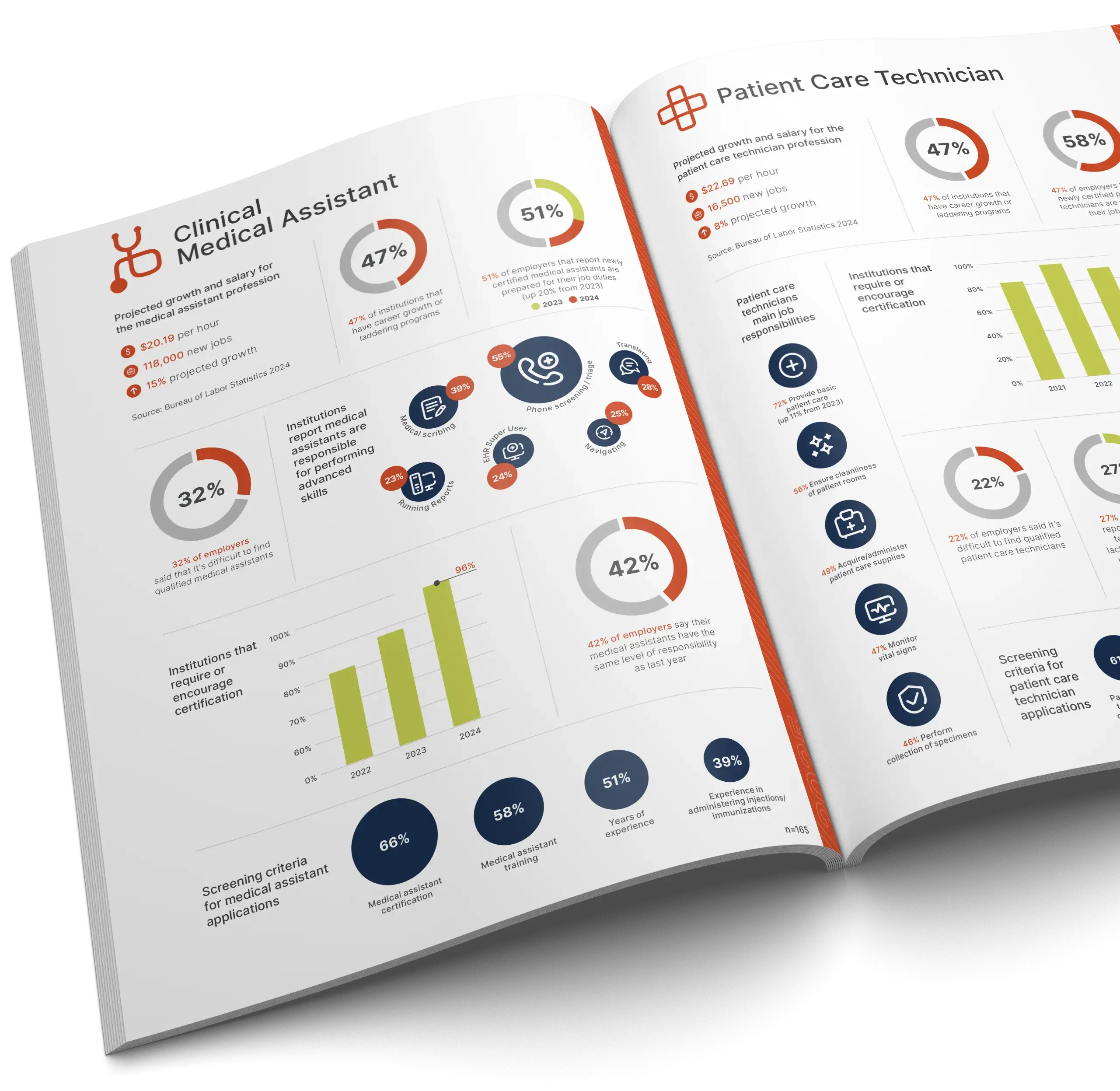
Check out past releases of the Industry Outlook & NHA Access™
Take a look at past issues to see where the industry has been to better understand where we're heading going forward!
2024 Industry Outlook
2023 Industry Outlook
2022 Industry Outlook
2021 Industry Outlook
2020 Industry Outlook
2019 Industry Outlook
2021 NHA Access™
2020 NHA Access™
2019 NHA Access™
2018 NHA Access™
2017 NHA Access™
